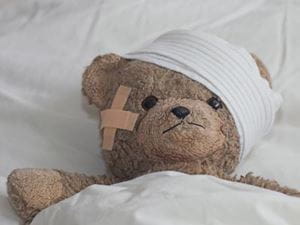
“Do you ever think to yourself, Is this it? Is this all there is?” someone asked me on Easter. He and his wife had been going through a very difficult period managing their special-needs son. Both looked drained and exhausted.
“Actually, no,” I responded. “The belief in an afterlife is what I cling to many days. It is what keeps me going.”
Even as I train myself to live more in the moment, to practice mindfulness as best as I can in whatever activity I am doing, and to appreciate the good in what is right before me, part of me is just so eager to have this life be over with. While most people envy the young with their smooth, clear skin, I’m jealous of the elderly with their canes and walkers. They’ve run most of the marathon and are only a few miles away from the finish line. They did it. They resisted the urge to shorten their lives at some painful crossroad and they got to the end.
How can I explain it in a way that will not seem morbid?
To quote Saint Augustine, “My heart is restless until it rests in Thee.” My heart always has been restless, even as a little girl. My grade-school friends thought it was strange that I obsessed about heaven. It’s not that there aren’t days when I’m humbled by the beauty and goodness that surrounds me and I thank God to be part of this wonderful world. When I’m grounded and stable, on days that I am blessed with good brain chemistry, I look forward to the second half of my life. However, there are many days I’m frightened by the thought of having another 40 years to go. I admit to getting down on my knees plenty of afternoons and begging God to take me.
My psychiatrist thinks this attitude is a symptom of my depression. Maybe it is. However, some of my best friends share my thoughts, and they haven’t even been treated for depression. One had a near-death experience when she was 10, and the memory of the warm light, as she explains it, places every moment of her life into a context few people would understand. The others are deeply religious and the promise of heaven keeps them from despairing. It inserts some meaning into this confusing, random, and at-times agonizing world.
A few hours after the conversation with my atheist friend, I showed up to Easter Mass late, alone, in jeans, and on the verge of tears. The holiday didn’t exactly go as planned, and this was my pathetic attempt at celebrating the greatest Christian feast of the year. However, God looked past my sorry appearance that evening and talked straight to my heart.
“The Easter message is this: that there is life after death!” the priest exclaimed. “It’s not over once we hit the grave, folks. Earthly events are a mere prelude to the afterlife we will enjoy with our loved ones and with God! For some people this life is pure hell. For others, purgatory at best. Don’t worry about this life. What matters is the Resurrection, which tells us that eternal life is real and that it is a place without suffering.”
I felt immense relief.
There have been a flurry of studies lately on the benefits of religion and spirituality on mental health. One study published last year in the Journal of Affective Disorders said that patients who have a strong faith in God respond better to short-term treatment outcomes for depression and anxiety. Another study found that a strong sense of religion or spirituality can sometimes have a protective effect against the recurrence of depression.
While there are many aspects of religion and spirituality that contribute to good mental health--strong community ties, contemplative practices that thicken the brain cortex, volunteer efforts and works of service--I think religion’s most powerful tool is the sense of hope contained in the Easter message: the sermon I heard on that unusual evening. People who live with treatment-resistant depression and chronic pain, especially, need to know that heaven is for real, and it is a place without medical records or debilitating symptoms, without diagnoses and insurance claims. They need to know that there is a place where they won’t be sick and where getting to each tomorrow doesn’t take courage or strength.
To read more from Therese Borchard, click here.

